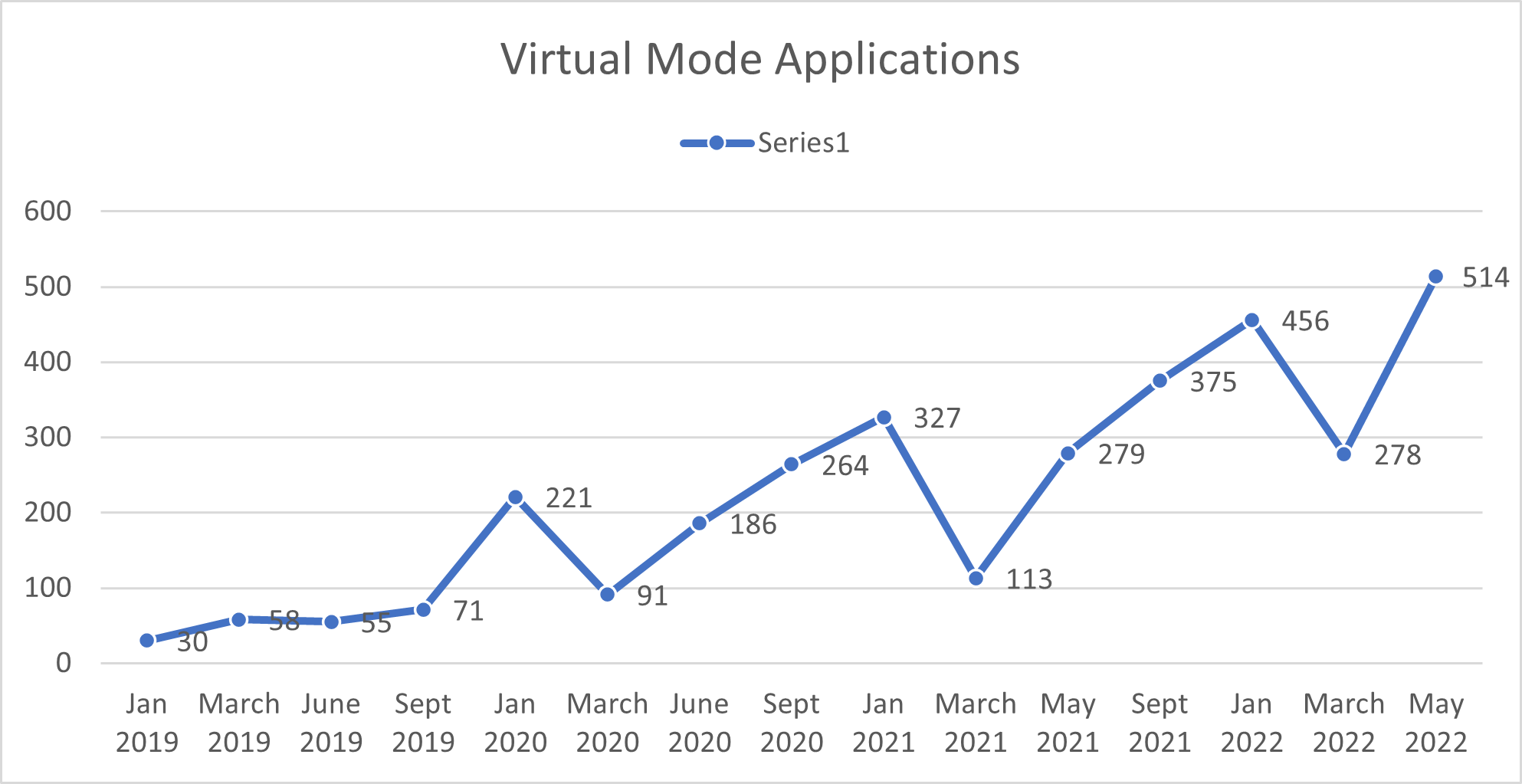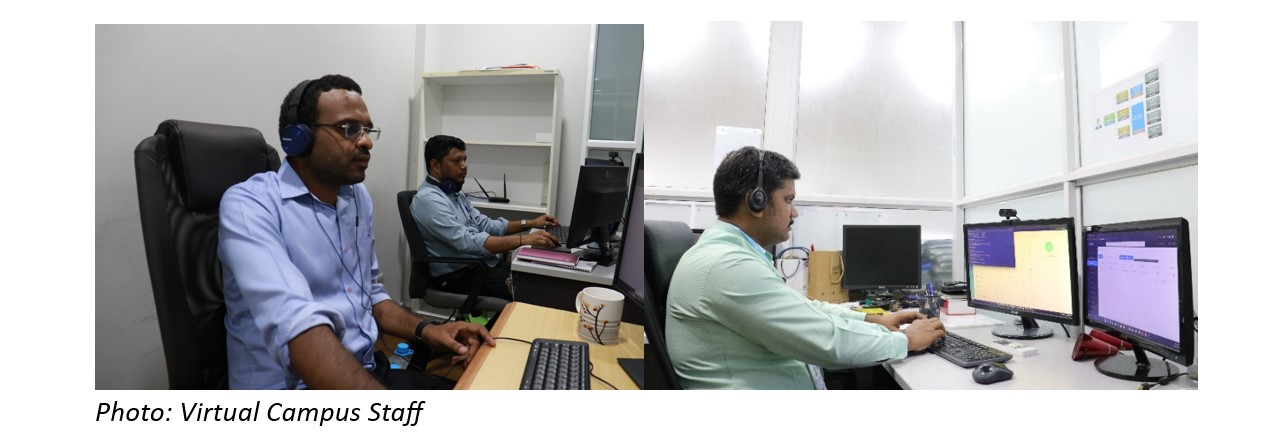About US
-
Introduction
-
Development of the Plan
- simplicity & efficiency,
- affordability & quality
- customer and staff happiness
- organizational growth
- Vision Statement
- Misson Statement
- promoting student engagement;
- encouraging innovative teaching and learning practices that meet the needs of a diverse student population;
- creating an academically rigorous and relevant learning environment;
- facilitating college-wide commitment that supports access, student development, student success, and academic goal completion.
- Focus
- Goal
- Objectives
-
Continue to develop and build the effectiveness and efficiency of MIC Operations by deploying digital strategies in the design of MIC functions and processes
-
Develop a unified learning management system that is integrated with the current student database management to provide full solution to all student related services through a well-articulated IT governance strategy
-
Provide faculty professional development opportunities to enable faculty to work more effectively with technology in an online learning environment
-
Provide exemplary support services regarding technical affairs & issues
-
Provide ICT related equipment and software as per the obligatory demand, to provide quality service to staff and students
-
Proper management of the existing Digital Platforms
- Performance Indicators
-
New applications, technologies and innovative solutions applied
-
User evaluation survey
-
Cost of Reactive software alteration reduction
-
Program / training completion and attendance rate
- Guiding Principles
-
Our efforts will align with and support MI College’s strategic plan and advance our institutional priorities of quality, completion, and student success.
-
Strong support from all stakeholders and academic departments is essential in expanding efforts in online learning.
-
The provision of excellent and relevant services to both faculty and students is at the heart of our efforts to improve. The Virtual department, academic deans, faculty, professional staff will collaborate closely with Information Technology Services (ITS), professional development, lecturers, the instructional developers, and student services, who as critical partners, provide relevant services for a quality online learning experience.
-
MI College is committed to creating a positive environment that expands opportunities and experiences for all members of our community, including persons with a disability.
-
Analyzed data will be used to guide continuous quality improvement. Assessment of resources, protocols and services will be on-going and systematic.
-
While the ownership of the academic quality of courses and programs resides with the college, faculty, and departments, improved online learning excellence is achieved through collaborative efforts of eLearning, faculty, professional staff, student services, information technology services, and academic administrators.
- Competitive Strategies
-
MI College must offer high-quality academic courses and programs that are perceived by our stakeholders to be superior in value to those available from competitors.
-
We must be committed to providing comprehensive, high-quality student support services to help distinguish our offerings from the competition.
-
While many online learning providers proclaim the quality of their programs and services, our approach will be to demonstrate quality through an ongoing process of assessment and evaluation.
-
Efforts at marketing and promotion must be well-designed, innovative, and focused on developing a brand that is based on the superior quality and value of our courses, programs, and support services.
- Student Enrolment in Virtual Mode
- Virtual Campus Team
Virtual Campus allows MI College to expand its portfolio of offerings to meet the needs of its diverse constituent base. Increased and convenient access to higher education, regardless of where students may live or their family or work obligations, helps to create a strong workforce and to attract businesses that provide high-skill, high-wage jobs that drive today’s economy.
A blend of talented, well-prepared faculty members, modern learning technologies, and well-designed online courses and programs creates opportunities to improve pedagogies, engage faculty in the scholarship of teaching and learning, increase student academic success, and accelerate time-to degree. At scale, Virtual Platform provides colleges and universities the means to significantly expand access to education far beyond the capacity and geographic limits of their brick-and-mortar infrastructure. These all combine to reduce barriers of opportunity and capacity, lowering the overall cost of delivering a quality education to all who may wish to receive it. It is a significant platform for Maldives, since the population is scatted across multiple tiny island communities.
We are currently in the successful implementation of a 3-year Strategic Plan (September 2023 to August 2025) for Virtual and Online Education which outlines goals and strategies that, when successfully pursued, will result in improved instruction and increased educational opportunities, leading to a greater number of local and international citizens holding valuable academic credentials and more efficient use of existing campuses while expanding access far beyond their borders.
The Plan provides a framework around which to unite the collective talents and resources of MI College toward a common purpose: more local and international students with educational credentials that will improve their lives, lead to new discoveries, and advance Maldives economy.
This platform was officially established in January 2019, with 19 students. Right now, there are 1625 students officially registered and pursuing in Virtual Mode.
On 1 September 2021, Mr. Wajeeh Naseer, Vice-Rector, was appointed as the Head of Instructional Technology and Online Learning Department. The Department was assisted by Mr. Aswin Gerald, who was appointed as the Virtual Coordinator (from 25 April 2019 to 30 June 2021). The Department is now helped by virtual Coordinator, Mr. Prabhu Appu, who was appointed on 12 October 2021, Mr. Saravanan Rajasekar, appointed on 22 March 2022, and Mr. Vignesh appointed 24 November 2017 and has been working as network administrator.
The plan has focus on four primary elements:
MI College will be a locally-recognized leader in exemplary virtual & e-learning experiences.
The mission of MI College in offering a quality virtual learning experience is to foster, support, and promote excellence in teaching and learning in all virtual and online environments by:
Employing simple, efficient and feasible digital platforms to provide quality service for customer & staff happiness, to maximize the organizational growth.
Bring about effectiveness and efficiency into all the process of MIC through focused investment on digital capacity building
Students have choices when considering virtual and face-to-face courses and programs. In the highly competitive environment of online learning, it is critical that the college develops a clear strategy to differentiate our online course offerings from those of competitors. The competitive strategy included in this strategic plan includes four primary components:

Chat:Enrolment growth of E-learning Modality (Virtual Mode) Students
Over the past three years, MI College has seen a substantial rise in the number of students enrolled in Virtual Mode. For the purpose of this report, a Virtual student is identified as one who has been admitted to a fully E-learning Mode program where 100% of the classes are offered online as synchronous leaning, meaning students are not required to come to campus for regular classes.


USEFUL INFORMATION AND UPDATES
for E-learning facilitation
Activities
Calendar
Need Any Help?
